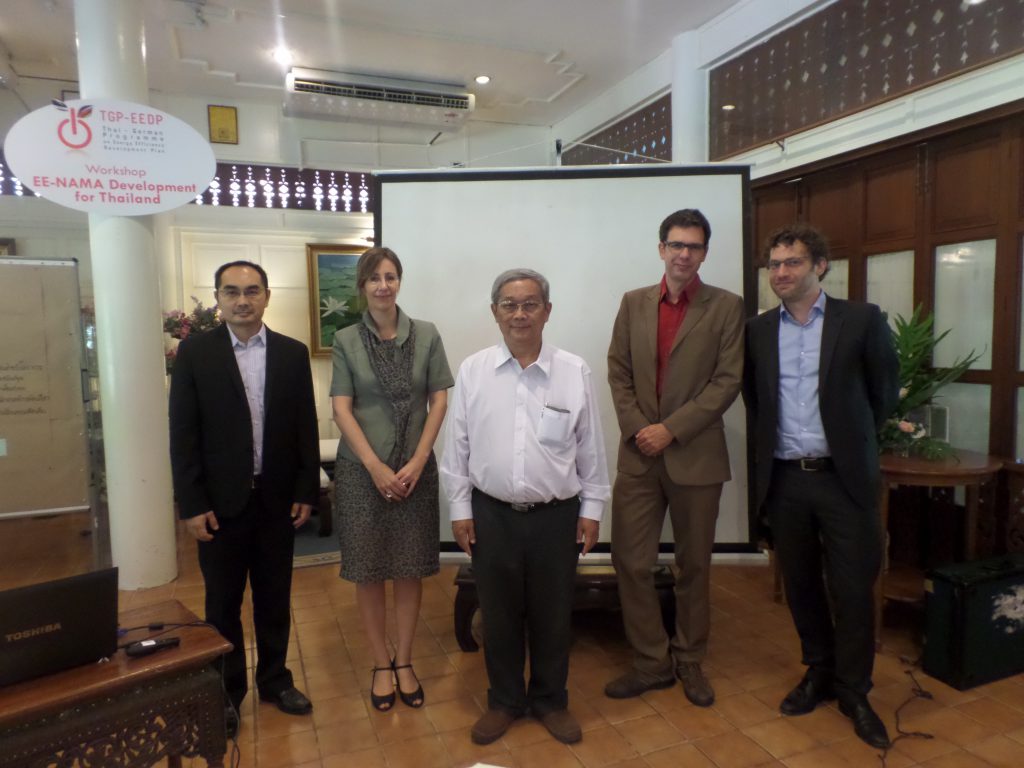Nationally Appropriate Mitigation Action (NAMA) is a voluntary measure for mitigating GHG emissions, which was firstly introduced in the Bali Action Plan in 2007 as a key mechanism to increase mitigation action in developing countries. After that in 2010, the Cancun Agreements recognized two types of NAMA—those developed with domestic resources (unilateral NAMA) and those requesting international support in the form of financing, technology transfer or capacity building (supported NAMA). However, as no internationally agreed definition for NAMA exists yet, NAMA activities are generally not limited as long as they are in line with national development plans and result in the mitigation of GHG emissions, including Thailand’s 20-year Energy Efficiency Development Plan (EEDP).
The implementation of the EEDP will strongly reduce Thailand’s greenhouse gas emissions. Those efforts could be claimed by Thailand as its contribution to mitigate climate change, if the plan or selected parts of it were formulated as Nationally Appropriate Mitigation Actions (NAMAs) and were officially registered with the UNFCCC. Additionally, international support could be sought to support an effective and ambitious implementation of selected measures. However, so far Thailand has not yet formally registered any NAMA with the UNFCCC. Consequently, neither criteria nor institutional processes to select suitable policies to be registered as NAMAs exist.
Therefore, on Monday 14 May 2014, TGP-EEDP on behalf of EPPO and GIZ is organising a workshop on “Defining Suitable EE-NAMA and international support needed“, co-hosted by our main implementing couterparts, TGO and DEDE, with the following objectives:
- To provide a platform to share status quo of NAMA development in Thailand
- To present identified suitable selection criteria for domestic and supported NAMAs in the field of energy efficiency
- To discuss the approach of domestic NAMA in Thailand and select at least two energy efficiency measures to be developed as one exemplary domestic NAMA and one supported NAMA related stakeholders.
Documents to be downloaded:
